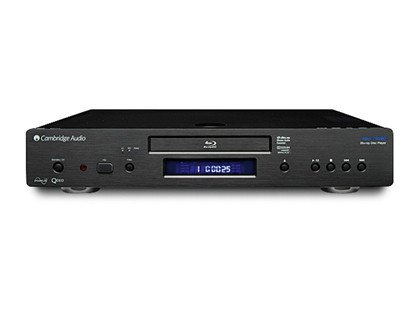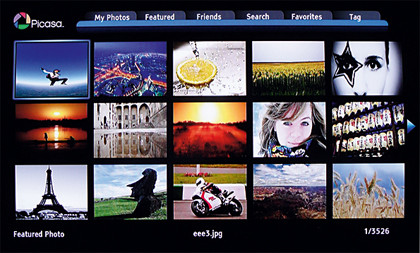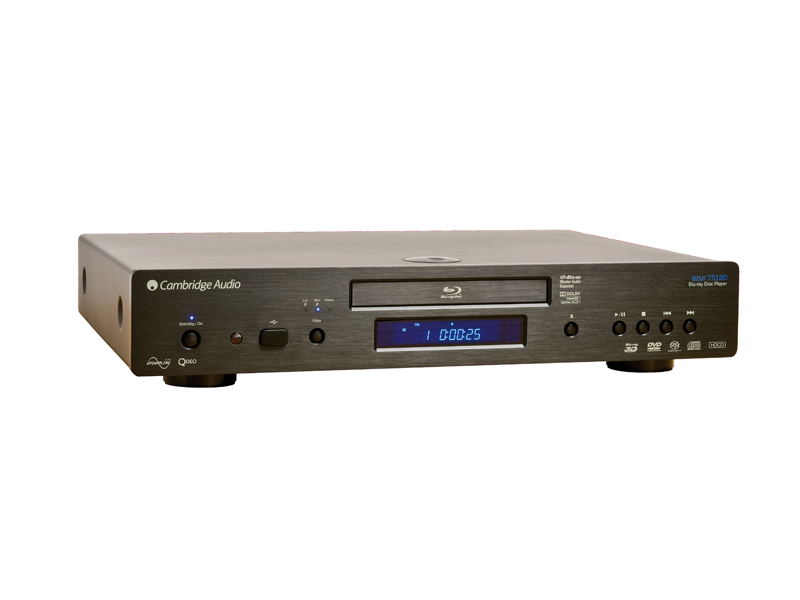Why you can trust TechRadar
Processing power

A peak beneath the lid reveals some powerful processing. A Marvell QDEO scaler is partnered by a Mediatek MTK8530 decoder, which handles 3D decoding, audio codes and suchlike. They're joined by a 32bit Analog Devices Sharc DSP. This upsamples all decoded material to 192kHz/24-bit, whereupon proprietary code applies jitter suppression and anti-alias filtering to all the analogue outputs.
It's at this point that you can choose your own filtering preference, via Minimum, Linear or Steep options on the front panel. To say the difference here is subtle is an understatement. I convinced myself I preferred Linear and left it at that.
As a 2D/3D Blu-ray player the 751BD is hugely impressive. The Extended edition of The Lord of the Rings provides an epic demonstration of BD clarity, which this player revelled in. On Return of the King, Chapter 65, The Black Gate Opens, the amount of raw detail and texture extracted from the disc is jaw-dropping. Every nuance from the AVC encode is there to be seen.
TechRadar Labs

Power consumption: Watts
Idle: 17 Watts
Powered: 20 Watts
Just ticking over, the Cambridge Audio deck draws a fair chunk of juice – but it uses less than 1W in standby. When playing a disc, consumption increases by 3W.
Audio jitter: Ps
Jitter: 156 Ps
The Azur 751BD's analogue audio jitter figure of 156ps is first-rate.
Loading: Boot/Java
Boot speed and tray eject: 4.5 seconds
Tray in to main BD Menu: 40 seconds
No time to make a cup of tea here.
Boot up and disc-loading times are nice and snappy. DVD deinterlacing and interpolation, courtesy of the QDEO scaler, can be considered well above average. The QDEO doesn't quite ace all the HQV Silicon Optix jaggies tests, although generally speaking upscaled video looks smooth and convincing.
The Mediatek-fed second HDMI output is not quite so polished, although there's a surprisingly small gap in performance between the two solutions. Wolfson WM8740 DACs guard each analogue audio ouput.
When it comes to audio, the 751BD exhibits outstanding imaging and musicality. The best results are to be had from Super Audio CDs, which can be output either as DSD or PCM. My preferred connection output proved to be multichannel analogue.
Sound investment

Out of the box, the 751BD plays by the rules and is region locked. However, there's anecdotal evidence to suggest that dealers are offering unlocked editions. It's certainly worth making enquiries. Of course, regional restrictions are far less significant for Blu-ray than DVD, because so many titles ship without playback constraints anyway.
Overall, the 751BD should be lauded as a brilliant disc-spinner. With its sturdy build and broad playback options, it's a relevant, powerful performer. While it may lack the net-connected niceties of mass-market machines, it stomps all over them when it comes to sonic finesse. Everyone in the Shire will soon want one.
Follow TechRadar Reviews on Twitter: http://twitter.com/techradarreview
Steve has been writing about AV and home cinema since the dawn of time, or more accurately, since the glory days of VHS and Betamax. He has strong opinions on the latest TV technology, Hi-Fi and Blu-ray/media players, and likes nothing better than to crank up his ludicrously powerful home theatre system to binge-watch TV shows.

